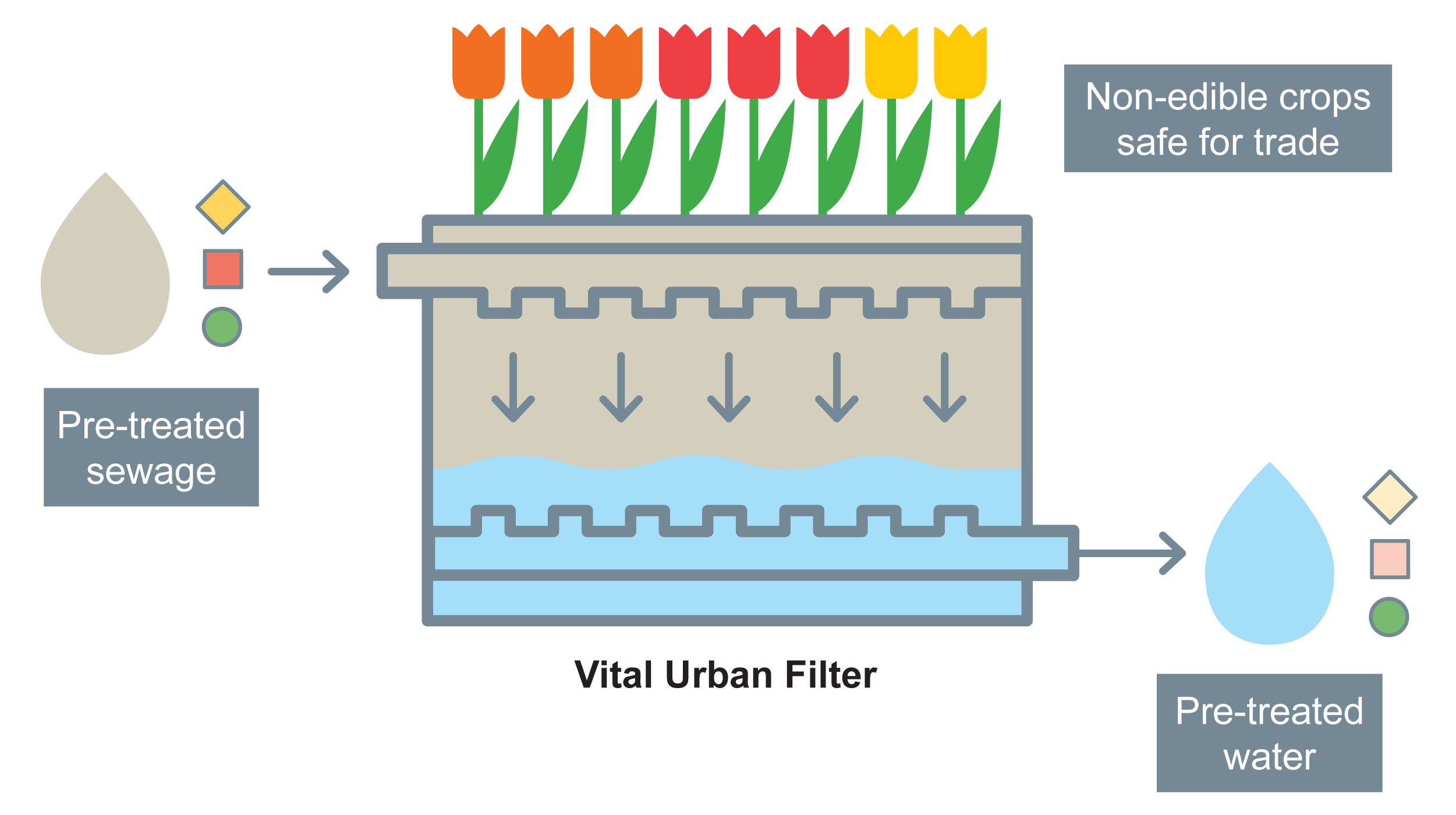

To be able to produce safe reusable water, pollutants have to be removed from the pre-treated drain water. Our aim is to develop the compact, robust and nature-based Vital Urban Filters (VUFs). This water treatment system is able to produce safe reusable, nutrient rich water for agricultural purposes while having an added social and economic value through the growing of plants.

The Vital Urban Filters are based on the principle of conventional vertical flow constructed wetland that are commonly used in decentralised wastewater management. The filter consists of a flat bed of hydroponic filter material planted with ornamental plants. The filter materials are highly porous providing a high surface area for biomass. As the influent percolates through the filter, heavy metals, pathogens and micropollutants are removed through the interaction of the plants, filter materials and bacteria.
The Vital Urban Filters are based on the principle of conventional vertical flow constructed wetland that are commonly used in decentralised wastewater management. The main difference is its smaller footprint due to the selection of highly efficient (high porosity and surface area) filter materials. These filter materials can adopt more biomass and thus can enhance sorption and degradation processes of pollutants.
The filter consists of a flat bed of hydroponic filter materials (e.g. mineral wool, pumice, wood fibre and coco fibre, commonly used in horticulture as a growth medium) planted with ornamental plants. As the filter material is highly porous, a high surface area is available for adsorption and bacteria (biomass) to grow on. These bacteria are responsible for the biological removal of pollutants. By using plants, the treatment process is improved because the plants’ roots take up nutrients from the water and provide oxygen into the filter that bacteria can use.
(Pre- treated) influent, for example from anaerobic membrane bioreactors (project 2) is rich in macro nutrients, such as nitrogen and phosphorus, making it excellent for irrigation. As the influent percolates down through the filter bed, it undergoes various physical, chemical and biological transformations processes. The interplay of the microbes, plants and filter material results in the removal of pollutants. The treated effluent, free of harmful constituents and rich in nutrients can now be safely reused for irrigation or other purposes.
The Vital Urban Filters are constructed using efficient filter materials, which provides major advantages for the eco-friendly VUF, including a simple and compact design and low investment and operational costs. This is all achieved while maintaining a good effluent quality and providing added economical and aesthetic values.

 Technology behind project 3b
Technology behind project 3b